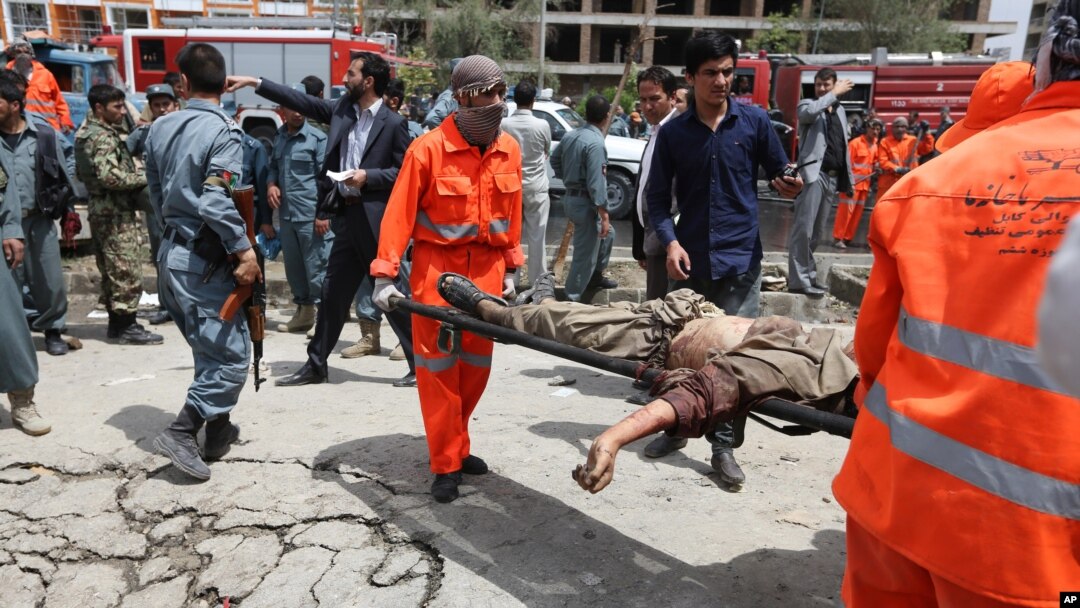Pakistan has rejected Kabul’s allegations that an officer of its intelligence agency was involved in an attack on the Afghan parliament.
Qazi Khalilullah, a spokesman for Pakistan’s ministry of foreign affairs, said his country is committed to good relations with Afghanistan.
“You must have seen that as soon as the terrorist attacks took place on the parliament, we issued condemnation on three levels. The prime minister himself did that, the speaker of the national assembly condemned the attack, and the foreign office also condemned the attack,” Khalilullah pointed out.
He also said the two countries had agreed to cooperate on counter terrorism and promised they will not allow their territory to be used against each other.
At least seven Taliban gunmen with explosives and suicide vests attacked Afghanistan’s parliament Monday, wounding 30 people.
Haseeb Sediqi, a spokesman for Afghanistan’s intelligence agency the National Directorate of Security, said preliminary investigations indicate the attack was hatched in Pakistan’s city Peshawar.
According to Sediqi an ISI officer, Bilal, helped Haqqani network operational commander Maulvi Sherin in the planning. The attackers were provided about $75,000 for the execution of the attack on the Afghan legislative body.
Sediqi did not have enough information to determine whether Bilal was working on behalf of ISI or on his own.
The two countries have recently signed a first of its kind memorandum of understanding to cooperate on intelligence sharing, as well as possible joint investigations of terrorism suspects. According to Sartaj Aziz, Pakistan's advisor on national security and foreign affairs, the deal was initiated by Kabul.
But Pakistan’s Foreign Secretary, Aizaz Ahmed Chaudhry, informed the Senate’s Foreign Affairs Committee Thursday the “ratification of the (ISI-NDS) agreement has not been received yet.”
Afghan NDS spokesman Sediqi could not say whether there would be a joint investigation between the intelligence agencies of the two countries in the case of the parliament attack.
“Our president and our ministry of foreign affairs have also declared that this MoU was on general principles and more operational details have to be discussed about this cooperation,” Sediqi explained.
The allegation from Kabul has put a strain on the delicate relationship between Pakistan and Afghanistan’s unity government. The two sides have been trying hard to improve their ties. There seems to be a sea change from the time of President Hamid Karzai who often blamed Pakistan for facilitating cross border attacks and harboring terrorists.
Pakistan national security advisor Sartaz Aziz told the Senate Foreign Affairs Committee that Pakistan is using “whatever influence it had” with the Afghan Taliban to persuade them to engage with Kabul for a reconciliation process.
He blamed the slow pace of progress on divisions in the ranks of Taliban. Some groups, Aziz said, are opposed to peace and are “raising hue and cry and issuing statements, while others (in favor) are silent.”
He was referring to a statement by Afghan Taliban in which they distanced themselves from a secret meeting between Afghan peace negotiators and members of the Islamist group last month in China. Pakistan organized the meeting.
Aziz also told the committee the “next few weeks are critical” and require persistent effort to help the peace process in Afghanistan.
“The challenge is big, but I am hopeful,” he said, advising against public debate on the issue due to the delicate nature of the negotiation process.


